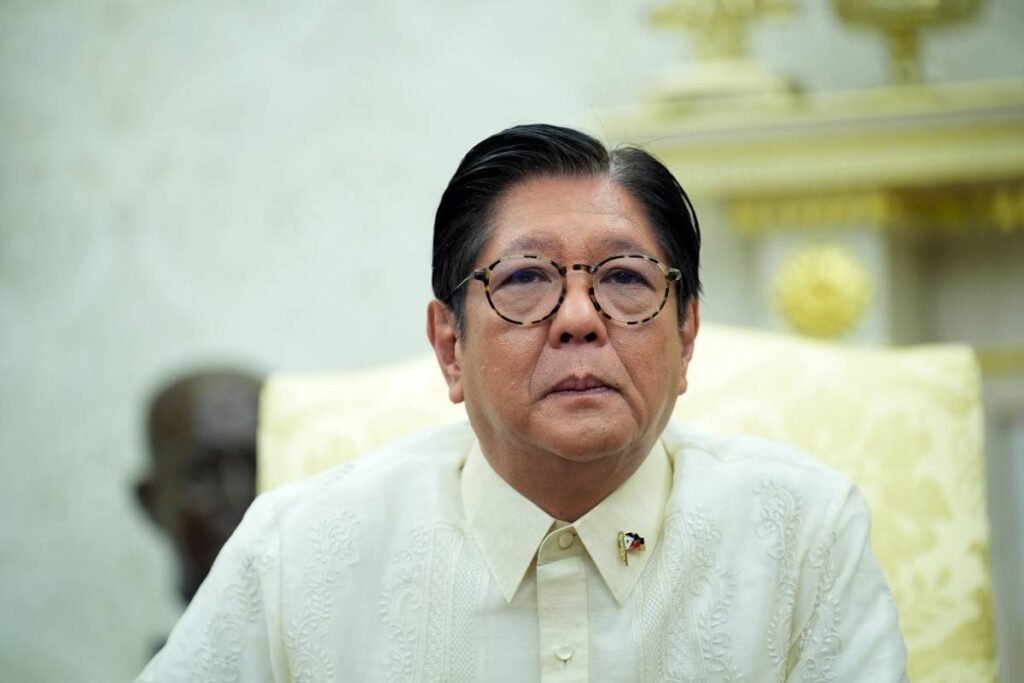NEGOTIATIONS over the Philippines’ new 19-percent US tariff rate are “not finished,” a key government economic adviser said Thursday, tamping down fears over the deal’s potential impact on the agriculture sector.
President Ferdinand Marcos Jr. flew back to the country late Wednesday after a three-day trip to Washington that saw him emerge from a meeting with Donald Trump having shaved a single point off a 20-percent levy on Filipino goods.
What might “seem like a very small concession” was in fact a “significant achievement,” Marcos told reporters who questioned if the Philippines, a longtime US treaty ally, was getting the short end of the stick.
The US president, meanwhile, touted “zero tariffs” on American goods headed to the archipelago nation of 115 million.
But Marcos economic adviser Frederick Go said Thursday that tariffs would not be dropped in every category.
Get the latest news
delivered to your inbox
Sign up for The Manila Times newsletters
“The negotiations are not yet finished. Our technical working groups will continue to work with their counterparts from America to finalize the details of this arrangement,” he told reporters in Manila.
“There are still many things to be discussed.”
Since the Trump meeting, the Marcos administration has played down the potential effects of the tariffs, noting just 16 percent of the country’s exports go to the United States, with about two-thirds being electronic components not subject to levies.
On Thursday, Go said that while tariffs would disappear for certain agricultural products like soy and wheat, key areas such as sugar, corn, rice, fish and pork would remain protected for Filipino farmers.
“I can guarantee you we studied our biggest industries in the country where we are a significant market producer. We didn’t include those in our arrangements with the United States,” he said.
Go also touted the benefit to Filipino consumers of dropping some tariffs, particularly on pharmaceuticals.
“Medicines are expensive in the Philippines. If they are tariff-free, then that can lower the price of medicine in our country,” he said.
In a Palace briefing, Go also clarified that American consumers would be the ones shouldering the tariffs imposed by the United States, and not Filipinos.
Once the new tariffs are applied, the additional cost is usually passed on to the buyers. This means that consumers in the US will pay more for Philippine goods, not Filipino exporters.
Higher tariffs, however, could make Philippine goods less attractive in the US, given their higher price tags.
Go also said while the tariff on Philippine goods was now higher than the 17 percent proposed in April, it is the second lowest in Southeast Asia, behind Singapore, which has a 10-percent rate.
“This is important because when our tariffs are low, we can attract foreign direct investors in the Philippines to build factories, build businesses in the Philippines to export their products to America,” the official said in Filipino.
“So, it is important that we are the second to the lowest here in Southeast Asia so that they can build their businesses here,” he added.
Jesus Felipe, an economics professor at De La Salle University, said the actual number of Philippine exports hit by the full tariff would likely be low.
“That’s the number (19 percent) that has been flagged, but our feeling is that many products — a substantial share of Philippine exports to the US — will have to be exempted.”
While predicting the effect on Philippine gross domestic product would effectively be “nothing,” Felipe said the “imperialist attitude” with which the United States was treating smaller countries remained worrying.
Countries with far larger US trade deficits like China, Mexico and Canada had “much more power and leverage” to fight back, he said.
Meanwhile, Sen. Juan Miguel Zubiri said the Philippines should negotiate tariff terms with the US “on par” with what Japan, a fellow US treaty ally, enjoys.
“Japan secured a 15-percent reciprocal tariff agreement with the US,” Zubiri said in a statement on Wednesday. “If the United States truly sees us as a treaty ally, we should be accorded the same level of mutual respect in trade policy,” he said.
Zubiri said that the Philippines has a similar trade arrangement with Indonesia, which is not even a treaty ally and does not host US forces or Enhanced Defense Cooperation Agreement sites.
“The cost of production is already steep in the Philippines, and a 19-percent tariff on our goods makes them even less competitive in the US market,” he said.
“Meanwhile, the zero-tariff entry of American goods would almost certainly flood the country with cheaper imports, posing serious risks to local producers,” he said.
Zubiri also sought full disclosure of the trade deal’s final provisions.
“If the administration believes this is the best path forward, I trust that they can justify how it will serve the long-term interests of Filipino producers and secure fairer trade terms for the country,” he said.











